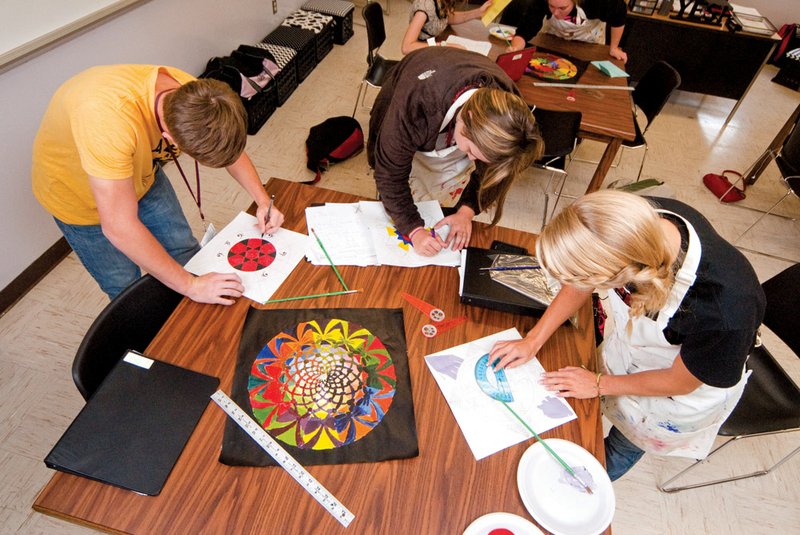HIGHLAND — When students take ownership of their education and apply their schoolwork to real-world problems, the process changes the culture of the school. That’s what the Highland School District is discovering with its New Tech program.
As one of the few schools in Arkansas to participate in a pilot program that offers project-based learning, the district’s eighth- and ninth-graders are a few months into the program, and administrators say they believe it has curbed bullying in their school.
The district received a $150,000 grant from the Governor’s Workforce Cabinet to integrate technology into the classroom and combine classes, such as geometry and art, civics and English, and social studies and English. Physical science, algebra and Spanish are still standalone classes.
Annette Scribner, the New Tech director, said a lot of research went into the project before it launched this year, using no local funds. She said plans are being made to take the program to other grades beginning with the 2013-14 school year.
“We got to see what a school would be like, and we got to ask questions,” she said about visiting schools in Texas and Iowa that use the New Tech program.
She said the teachers still teach and they still test, but the way they go about it is different.
“Learning happens during the project,” Scribner said. “The eighth-grade social studies class studied about the Renaissance, and they talked about the changes in our school and compared it. Through the process, they learned about our changes, as well as the Renaissance.”
She said a common question she would hear from students is, “Why do we have to learn that?”
“Well, now they see how it fits into real life, and the students also become responsible for their learning,” Scribner said. “Every project ends with a presentation.”
The students work together on projects, and they become peer mentors and ultimately police themselves. “Trust, respect and responsibility” is the motto that is posted throughout the New Tech building.
“The middle-of-the-road students are given a platform, a voice, and they can reach the same level of success that the ‘bright’ students have been attaining,” she said. “The kids [in the program] have more privileges, but with privileges comes responsibility.”
Some of those privileges are working independently at tables that are scattered throughout the hallway and having a voice in their education.
“You learn a lot better, and it sticks,” said Tori Wade, a ninth-grader.
Agreeing with her classmate, ninth-grader Tressie Rhoades said she believes the students are more respected in the New Tech classroom environment than in a traditional classroom.
“The teachers respect you more,” she said. “We have our own ideas, and we can express that. It is expanding our learning.”
Nodding in agreement, Sydney Henkels, also a ninth-grader, said she likes the real-world applications of the New Tech classrooms.
“There’s a real-life connection,” she said. “There’s more than just information; it’s part of life.”
Missy Fuller, an art teacher at the school, said one of the real-life projects her classes are working on is designing a miniature golf course.
“They get to apply what they learn, and it’s not just art for art’s sake,” she said. “They will be designing a miniature golf course and getting the angles for the ball and then what they want it to look like. They will develop a marketing strategy.”
And by the students taking some ownership in their education, Scribner said, bullying in the high school has virtually stopped. She said it could be because the kids are communicating with each other more and working together on projects.
“Some of these kids have known each other since kindergarten but have never spoken to one another,” she said. “Now, they are getting to know each other and getting to know their backgrounds.”
High school Principal Kara McEntire agreed with Scribner about the bullying coming to a halt.
“Last year, we did have bullying, but we’ve not seen any this year at all,” McEntire said. “The kids are communicating more, and we aren’t seeing the resistance and bullying.”
To learn more about the pilot program, visit
newtechnetwork.org/schools/highland-high-school and www.facebook.com/
HighlandNewTech.
Staff writer Jeanni Brosius can be reached at (501) 244-4307 or jbrosius@arkansasonline.com.
